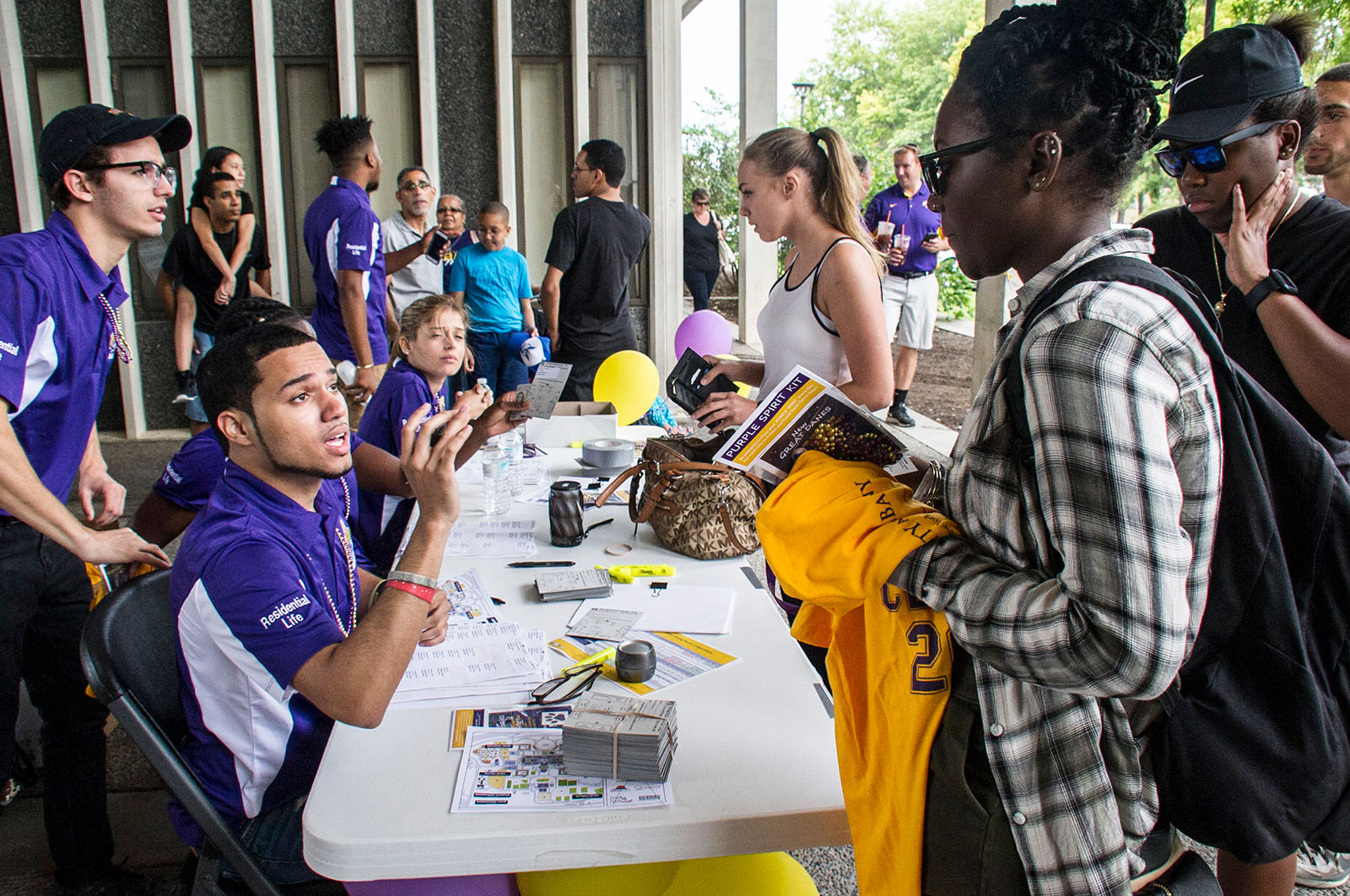
Bachelor of Science
in
Environmental and Sustainable Engineering
Program of Study
You will develop skills that can be applied at a local or global level to promote sustainability in all areas related to the environment and public health.
UAlbany provides you with a rigorous curriculum, a team of dedicated and renowned environmental engineering leaders who have long-term vision, and deep commitment to sustainable engineering.
As an ESE student, you will:
- Use different tools to analyze data, generate models and design processes for pollution control, remediation or sustainable resource utilization
- Learn to work effectively and collaboratively with people from different backgrounds
- Interact with world-class faculty, complete internships, and lead senior design projects aimed at finding solutions to real-world problems
- Engage in a wide range of clubs, professional organizations and activities where you network with your peers and engineering practitioners around the globe
- Conduct hands-on research on all environmental problems related to water, air, solid waste, water resources management, and energy sustainability
- Be fully prepared to enter industry, government or pursue advanced degrees.
"The ESE department offers an excellent opportunity for students and faculty members having an interdisciplinary platform for their learning, teaching and research. Having expertise in urban and rural air quality issues, I feel great joy sharing my knowledge and experience to my students and seeing them working on air quality problems is truly rewarding."
- Md. Aynul Bari (ESE faculty)
Environmental engineers enjoy among the highest starting salaries and are in great demand for careers in industry, government and academia, as well as with consulting firms to help clients manage their environment issues.
Between now and 2024, the New York State Department of Labor projects a growth of nearly 21%, and the US Department of Labor projects more than 12%, in environmental engineering jobs. Our program provides both a conventional environmental engineering education along with sustainable engineering. This valuable combination opens even more career paths at the intersections of different disciplines including industry, government, academia and consulting firms.
Potential job titles include:
Air Quality Analyst, Energy Engineer, Water Quality Specialist, Remediation Manager, Sustainable Designer, and Process Engineer.
The University’s well-connected Capital Region location and proximity to New York City and Boston mean the immediate area is well represented by engineering firms and government organizations eager to prepare our students through exciting internship opportunities – which often leads to a significant number of job offers.
Institutional Accreditation
UAlbany is fully accredited by Middle States Commission on Higher Education.
Academic Program Accreditation
The BS Environmental and Sustainable Engineering program is accredited by the ABET Engineering Accreditation Commission.
BS Environmental and Sustainable Engineering
Program Education Objectives
Graduates of the Environmental and Sustainable Engineering program are expected to:
- Be able to work collaboratively and communicate effectively with people from other backgrounds to solve critical environmental problems through sustainable approaches.
- Excel in their chosen profession through lifelong learning and become leaders in their professional service.
- Maintain high professional and ethical standards and stand out as examples for their peers.
- Become exemplary citizens by serving their local community and the broad society using their professional knowledge.
Student Outcomes
The Student Outcomes for the Environmental and Sustainable Engineering program are:
- An ability to identify, formulate and solve complex engineering problems by applying principles of engineering, science and mathematics.
- An ability to apply engineering design to produce solutions that meet specified needs with consideration of public health, safety and welfare, as well as global, cultural, social, environmental and economic factors.
- An ability to communicate effectively with a range of audiences.
- An ability to recognize ethical and professional responsibilities in engineering situations and make informed judgments, which must consider the impact of engineering solutions in global, economic, environmental and societal contexts.
- An ability to function effectively on a team whose members together provide leadership, create a collaborative and inclusive environment, establish goals, plan tasks and meet objectives.
- An ability to develop and conduct appropriate experimentation, analyze and interpret data and use engineering judgment to draw conclusions.
- An ability to acquire and apply new knowledge as needed, using appropriate learning strategies.
Note: The formatting and language as related to “learning objectives and outcomes” for the College of Engineering and Applied Sciences are ABET specific and differ from our internal UAlbany academic assessment standards.
Enrollment and Graduation Data
What Makes The University at Albany Great

Live and take classes with other incoming freshmen who share your personal interests, passions or intended academic major.

Become a global citizen: international experience is crucial to success in business, education, research, and public policy.

Research, scholarship, and creative activities at the University at Albany is an option for all students, across all academic disciplines. You will be able to learn more about a specific academic field or career path all while building a long-lasting mentoring relationship with a faculty member or principal investigator.
Explore Minors
Build competency in a passion or strengthen your resume.
A minor consists of 18–24 graduation credits which must include a minimum of 9 graduation credits of advanced coursework at or above the 300 level. Most undergraduate degrees require completing a minor and it has to have a different title from your major.
Full List of Minors
- Acting
- Africana Studies
- Anthropology
- Art
- Art History
- Atmospheric Science
- Bioethics
- Biology
- Broadcast Meteorology
- Business
- Chemistry
- Chinese Studies
- Cognitive Science
- Communication (Fully Online Option)
- Computer Science
- Creative Writing
- Criminal Justice Studies (Fully Online Option)
- Cybersecurity (Fully Online Option)
- Documentary Studies
- East Asian Studies
- Economics
- Educational Studies
- Electrical and Computer Engineering
- Electronics
- Film Studies
- Emergency Preparedness, Homeland Security and Cybersecurity (Fully Online Option)
- English
- Forensic Science
- French
- Game Design and Development
- Geographic Information Science
- Geography
- Globalization Studies
- Hebrew
- History (Fully Online Option)
- Informatics (Fully Online Option)
- Instrumental Performance
- International Studies
- Italian
- Japanese Studies
- Journalism (Fully Online Option)
- Judaic Studies
- Korean Studies
- Latin American and Caribbean Studies
- Law and Philosophy
- Leadership
- Legal Studies
- LGBTQ Studies
- Library and Information Science
- Linguistics
- Machine Learning
- Mathematics
- Medical Anthropology
- Music
- Musical Performance
- Musical Theatre
- Philosophy
- Physics
- Political Science
- Portuguese
- Pre-Education
- Psychology (Fully Online Option)
- Public Health
- Public Policy
- Religious Studies
- Russian
- Russian and Eastern European Studies
- Social Welfare Studies
- Sociology (Fully Online Option)
- Spanish
- Statistics
- Sustainability
- Theatre
- Theatrical Design/Technology
- Urban Studies and Planning
- U.S. Latino Studies
- Vocal Performance
- Women's, Gender and Sexuality Studies





